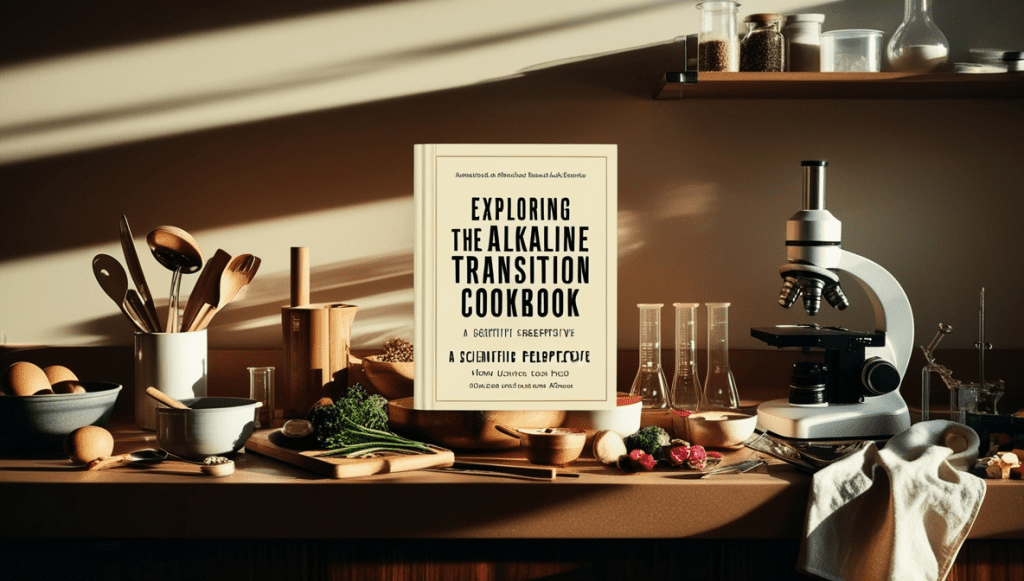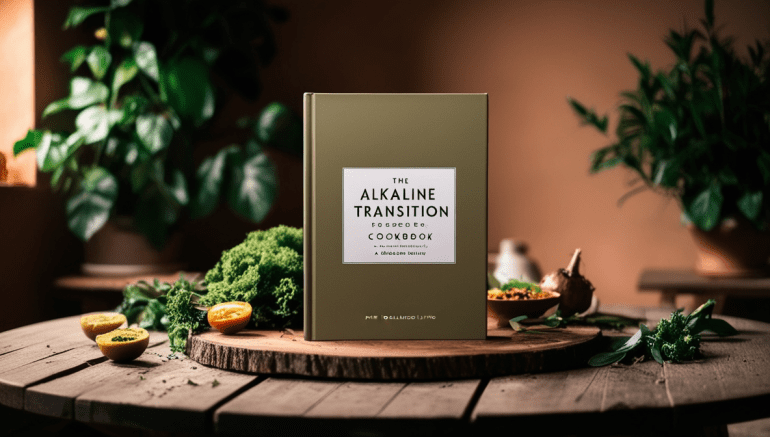The alkaline diet has gained popularity in recent years, with proponents claiming that it can improve health, aid in weight loss, and even reduce the risk of chronic diseases. The Alkaline Transition Cookbook serves as a practical guide for individuals looking to incorporate more alkaline foods into their diets. This article explores the scientific basis behind the alkaline diet, its potential health benefits, and how the recipes in the cookbook can facilitate a smoother transition to an alkaline lifestyle.
Understanding the Alkaline Diet
The alkaline diet is based on the premise that certain foods can influence the body’s pH levels, promoting a more alkaline environment. While the human body maintains a tightly regulated blood pH (around 7.4), dietary choices can affect urine and saliva pH levels. Foods are categorized as acid-forming or alkaline-forming based on their metabolic byproducts. Alkaline foods typically include fruits, vegetables, nuts, and legumes, while acid-forming foods often consist of meat, dairy, and processed items.
Research indicates that diets high in fruits and vegetables may offer numerous health benefits. A study published in Frontiers in Nutrition found that an alkaline diet combined with aerobic exercise led to significant improvements in body composition and aerobic performance among sedentary women, including a 5.17% decrease in BMI and improvements in lipid profiles (1). This suggests that transitioning to an alkaline diet could have positive effects on overall health.

Scientific Evidence Supporting the Alkaline Diet
- Impact on Chronic Diseases: The alkaline diet emphasizes whole foods rich in potassium and magnesium, which can help reduce systemic inflammation and lower the risk of chronic diseases such as hypertension and diabetes (5). Increasing fruit and vegetable intake has been associated with improved cardiovascular health and reduced mortality rates from chronic diseases (6).
- Bone Health: Some studies suggest that an alkaline diet may benefit bone health by improving calcium retention and reducing urinary calcium excretion. A review highlighted that diets rich in fruits and vegetables could enhance bone mineral density by balancing acid-base levels (5).
- Muscle Health: Research indicates that an alkaline diet may help mitigate muscle wasting, especially in older adults. A study involving female participants found a small but significant increase in muscle mass among those following a more alkaline diet (4). This is particularly relevant as maintaining muscle mass is crucial for overall health and mobility.
- Cancer Prevention: While more research is needed, some theories propose that an acidic environment may promote cancer cell growth. Proponents of the alkaline diet argue that increasing alkalinity through dietary changes could create a less favorable environment for cancer cells (2). However, it is essential to note that while dietary changes can influence urine pH, they do not significantly alter blood pH levels.
Recipes for Transitioning to an Alkaline Diet
The Alkaline Transition Cookbook provides a variety of recipes designed to ease individuals into an alkaline lifestyle. Here are some examples of what you might find:
- Green Smoothies: Packed with spinach, kale, bananas, and almond milk, these smoothies are nutrient-dense and alkalizing.
- Quinoa Salad: Combining quinoa with colorful vegetables like bell peppers and cucumbers offers a refreshing dish rich in protein and fiber.
- Roasted Vegetables: A mix of seasonal vegetables drizzled with olive oil and herbs makes for a delicious side dish that supports alkalinity.
- Almond Butter Energy Balls: These snacks combine almond butter with oats and dates for a healthy treat that satisfies sweet cravings without acidic ingredients.
How to Find the Best Alkaline Transition Cookbook
Transitioning to an alkaline diet can be a transformative journey towards better health and well-being. With numerous cookbooks available, finding the best alkaline transition cookbook tailored to your needs can feel overwhelming. Here are some key factors to consider when searching for the ideal cookbook to guide you through this dietary change.
1. Understand Your Goals
Before selecting a cookbook, it’s essential to clarify your goals for transitioning to an alkaline diet. Are you looking to improve your overall health, manage a specific condition, or simply explore new recipes? Knowing your objectives will help you choose a cookbook that aligns with your dietary aspirations.
2. Check the Recipe Variety
A good alkaline transition cookbook should offer a diverse range of recipes that cater to different tastes and meal types. Look for cookbooks that include not only main dishes but also snacks, desserts, and beverages. This variety will keep your meals exciting and help you maintain the alkaline lifestyle without feeling restricted.
3. Evaluate Ingredient Accessibility
When selecting a cookbook, consider whether the ingredients used in the recipes are readily available at your local grocery store or farmer’s market. A cookbook that features common ingredients will make it easier for you to prepare meals without unnecessary hassle or expense.
4. Read Reviews and Recommendations
Before making a purchase, take the time to read reviews from other readers who have tried the cookbook. Look for feedback on recipe clarity, taste, and ease of preparation. Recommendations from trusted sources can also guide you toward high-quality cookbooks that have helped others successfully transition to an alkaline diet.
5. Look for Nutritional Information
A well-rounded alkaline transition cookbook should provide nutritional information for its recipes. This information can help you understand the health benefits of each dish and ensure that you’re meeting your dietary needs as you make this transition.
Consider Author Credentials
When selecting an alkaline transition cookbook, it’s crucial to research the author’s background and expertise in nutrition, particularly regarding alkaline diets. An author with a solid understanding of dietary principles and experience in healthy cooking can offer valuable insights and tips throughout the cookbook. For instance, authors who have formal training in nutrition or have published reputable works on dietary health can provide evidence-based information that enhances your understanding of the alkaline diet.
One highly recommended resource is the Alkaline Transition Cookbook: A Step Towards Healthier Living. This cookbook not only features a variety of delicious recipes but is also authored by knowledgeable individuals who understand the intricacies of the alkaline diet. You can explore this cookbook further at Cookbooks Vegetarian.
Choosing a cookbook backed by credible authors ensures that you receive accurate information and practical advice, making your transition to an alkaline lifestyle smoother and more effective.
Recommended Alkaline Transition Cookbook
One highly recommended resource for those looking to embrace an alkaline lifestyle is the Alkaline Transition Cookbook: A Step Towards Healthier Living. This cookbook offers a comprehensive guide filled with delicious recipes designed to help you transition smoothly into an alkaline diet.
- Diverse Recipes: The Alkaline Transition Cookbook features a wide variety of recipes that cater to different tastes and dietary preferences, ensuring you never get bored with your meals.
- Accessible Ingredients: The recipes utilize ingredients that are easy to find, making it simple for you to prepare nutritious meals without frustration.
- Nutritional Guidance: This cookbook provides valuable nutritional information alongside each recipe, helping you understand how each dish contributes to your overall health.
For more details about this fantastic resource, visit Alkaline Transition Cookbook: A Step Towards Healthier Living.
The Alkaline Transition Cookbook serves as a valuable resource for those looking to adopt a more plant-based diet focused on alkalinity. Supported by scientific research highlighting the benefits of increased fruit and vegetable consumption, this approach offers potential improvements in health outcomes related to chronic diseases, bone density, muscle mass, and overall well-being. As with any dietary change, it’s essential to consult with healthcare professionals before making significant adjustments to ensure that individual nutritional needs are met.
By embracing the principles outlined in the Alkaline Transition Cookbook, individuals can enjoy delicious recipes while reaping the health benefits associated with an alkaline diet.
References
- Effects of 8-week alkaline diet and aerobic exercise on body composition Frontiers in Nutrition.
- The Alkaline Diet and the Warburg Effect World Nutrition Journal.
- The Alkaline Diet: What You Need to Know MD Anderson Cancer Center.
- Is There Evidence That an Alkaline pH Diet Benefits Health? PMC.
- The issue of acidity and alkalinity in our diet AK Journals.







